Fentanyl Detox in Orange County
Learn what to expect during Fentanyl detoxification at Lift Off Recovery.
Lift Off Recovery offers safe, effective, and empowering inpatient rehab and fentanyl detox programs for Orange County residents.
Fentanyl is an opioid medication that is used medically for pain management. It is 100 times more potent than heroin; and can be highly addictive. So, while fentanyl can help people who are recovering from severe injury, illness, or surgery, it can also be abused.
People who have become addicted to fentanyl can receive the help they need at Lift Off Recovery’s detox and rehab program. With the support of medical professionals and skilled therapists, clients can move safely through the recovery process and rebuild their lives.

What is Fentanyl Detox?
A person who is experiencing issues that are indicative of alcohol abuse or alcoholism will typically show signs of potential problems first. After a period of time, problems related to drinking alcohol grow to such an extent that they are unable to control them any longer.
Eventually, people addicted to alcohol may start to receive various consequences from their drinking. Alcoholism does not just happen one day, but over a period of time. There are often signs and symptoms of a developing storm such as:
What Is Fentanyl? An Opioid Pain Medication
Fentanyl is an opioid pain medication that’s often used to treat severe pain that develops after surgery or other medical procedures.
Along with fentanyl, other common opioids (aka narcotics) include morphine, codeine, opium, oxycodone, methadone, and heroin. All opioids are derived from the poppy plant.
Why Fentanyl is Effective - and Potentially Dangerous
Fentanyl works as a pain medication by increasing the levels of dopamine. Dopamine is a neurotransmitter associated with the pleasurable sensations of the brain’s reward system. It reduces painful sensations while also creating a feeling of relaxed euphoria. The reduction of pain sensations and increased levels of relaxation are what make this drug effective as a medical treatment.
However, patients using fentanyl medically may develop a tolerance for the drug, which requires larger doses to achieve the same effect. Over time, this pattern of use can escalate into an addiction. And the pleasant effects of fentanyl may tempt people who don’t require it medically to abuse it.
Fentanyl dependence can happen to someone taking the drug for a medically valid reason via a doctor’s prescription. Dependence can also happen to someone taking the drug illegally and recreationally.
In either case, chronic fentanyl use can lead to dangerous dependence—a debilitating addiction that requires professional intervention.
Signs of a Fentanyl Overdose
For anyone consuming fentanyl outside the bounds of a medical prescription, not only addiction but also overdose is a risk. An overdose of any substance is dangerous and potentially lethal—and requires immediate medical attention.
Signs of fentanyl overdose include:
- Slurred speech
- Difficulty walking
- Mental confusion and disorientation
- Shallow or labored breathing
- Cold, clammy skin
- Extreme sleepiness
- Severe dizziness

Why Is Detox Necessary?
People who have become addicted to fentanyl can recover from the addition. They can heal their bodies, transform their minds, and create newly meaningful lives.
The first stage of addiction recovery—which is the most physically challenging—is detox. Because this process is difficult, it’s best to undergo it with the support of medical professionals in a fentanyl addiction treatment center like ours in Orange County.
Trying to stop “cold turkey,” can trigger severe symptoms of opioid withdrawal syndrome. However, medical detox supports a gradual tapered removal of the drug from the client’s body. This method is a safer and more comfortable way to detox.
In an inpatient residential rehab facility, trained medical professionals can monitor the detox process and help to alleviate withdrawal symptoms. So, it’s important for someone recovering from a fentanyl addiction to undergo a medically supervised detox.
Fentanyl Withdrawal Symptoms
When fentanyl use is stopped suddenly or reduced significantly, withdrawal symptoms can develop that are similar to other opioid withdrawal symptoms.
According to the National Institute of Health, symptoms of opioid withdrawal may include:
- Downcast or depressed mood
- Intense cravings for more fentanyl
- Fever, chills, and/or sweating
- Restlessness
- Insomnia
- Yawning
- Tearing up
- Hypertension and anxiety
- Elevated heart rate
- Runny nose
- Dilated pupils
- Stomach cramps
- Aching joints and/or muscles
- Body hair standing on end, or bristling
- Muscle weakness
- Nausea, vomiting, and/or diarrhea
- Anorexia
- Increased respiratory rate
Post-Detox Protocols
Once the physical detox process has been completed, the recovering addict will receive therapeutic support. A combination of individual and group therapy helps the person recovering from fentanyl addiction to understand how to avoid relapse.
The person learns how to cope with challenging situations in ways that don’t involve using drugs or alcohol. And they receive help in creating new habits and self-care rituals that support physical, mental, and emotional wellbeing.
But all this can happen only after the detox—the first step of the recovery process—is complete.
Risk Factors for Fentanyl Addiction
What makes one person more susceptible than another to fentanyl addiction? There are several risk factors—some of them hereditary, and others environmental—that tend to increase the risk of fentanyl addiction.
These include:
- A family history of addiction and substance abuse.
- Suffering from a health condition for which fentanyl is prescribed.
- A social environment where drug and/or alcohol abuse is common.
- Having a novelty-seeking (aka sensation seeking) personality type.
- Having impulsive tendencies.
- Having abused alcohol or other drugs in the past.
- Having easy access to fentanyl.
Symptoms of Fentanyl Addiction
The continual abuse of fentanyl can have many damaging effects. Fentanyl damages a person’s physical health. In addition, fentanyl abuse can negatively impact their performance at school, at work, at home, and socially.
The specific signs and symptoms of fentanyl abuse can vary from one person to the next. They can be physical, mental-emotional, and/or behavioral.
Physical Symptoms
- Drowsiness
- Constricted pupils
- Insomnia
- Slurred speech
- Psychomotor retardation
- Psychomotor agitation
- An oxygen deficiency in the body’s tissues
- Impaired visual acuity
- Slowed gastrointestinal activity
- Dry mouth and nose
Mental-Emotional Symptoms
- Cravings for fentanyl
- Attention difficulties
- Concentration difficulties
- Impaired memory
- Impaired judgment
- Suicidal thoughts
- Depression
- Euphoria followed by apathy
- Onset of new, or worsening of a current mental illness
Behavioral Symptoms
- Frequent absences from work or school
- Declined performance in work or at school
- Being expelled from school or losing a job
- No longer taking care of daily responsibilities
- Declined interest in things one was once interested in
- Financial difficulties
- Legal problems resulting from criminal activity to obtain fentanyl (e.g., forging prescriptions)
- Disturbed relationships
How to Know It's Time for Detox and Rehab?
Admitting that there’s a problem is the first step on the road to recovery.
An addict may proclaim that they can “quit any time that they want.” But this is almost never true. It is just a form of denial. And sooner or later—perhaps only when they’ve hit rock bottom—the addict will see that they’ve been fooling themselves.
So, what are the signs that a person’s fentanyl use has crossed the line into abuse or opioid dependence? The presence of any of the signs and symptoms listed above is a clue that it’s time to seek professional help.
What to Expect at Lift Off Recovery
Lift Off Recovery in Orange County offers fentanyl detox services, individual and group therapy, and life skills development. Our treatment center seeks to heal and integrate the body, mind, and spirit of clients recovering from addiction.
Intelligent and evidence-based treatment steps provide each client with a blueprint for a life of recovery. Through a wide variety of healing modalities and recreational activities, clients cultivate tools for long-term sobriety. They learn that an addiction-free life can be fun.
- Cognitive behavioral therapy
- 12-step meetings
- Anger management
- Music and art therapy
- Group outings
- Workouts at a gym
- Surfing
- Jiu-Jitsu
- Boxing
- Cooking
- Photography

By the time clients leave our treatment facility, they have the confidence, self-esteem, and life skills to manage recovery. We aim to have all of our clients leave as fully independent recovering people.
Begin Your Healing Journey
Questions or comments? Please feel free to contact us today.
View Our New Facility
If you are looking for inpatient rehab and detox services, Lift Off Recovery can help you recover from an alcohol or drug addiction and safeguard your health and overall well-being.













FILL THE FORM BELOW
The Journey Begins
CONTACT LIFT OFF RECOVERY TODAY FOR DETOX AND ADDICTION TREATMENT IN ORANGE COUNTY, CALIFORNIA!
Take the first step and contact us today. Our admissions specialists are ready to help you get the care you need. We can help you figure out how to pay for treatment and what level of care is right for you.
- Insurance Accepted
- Friendly Staff
- Years of Experience
